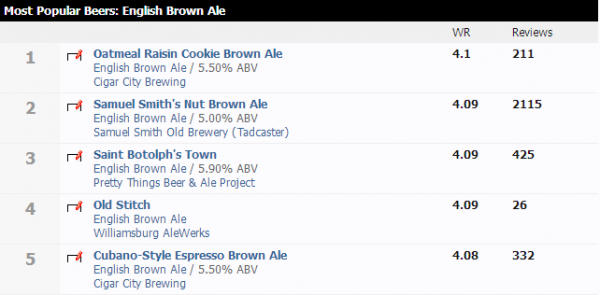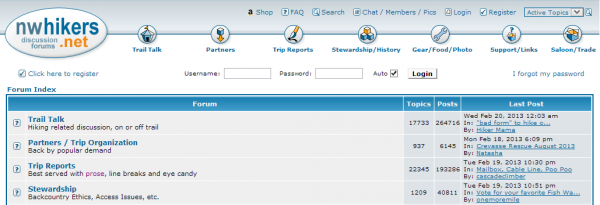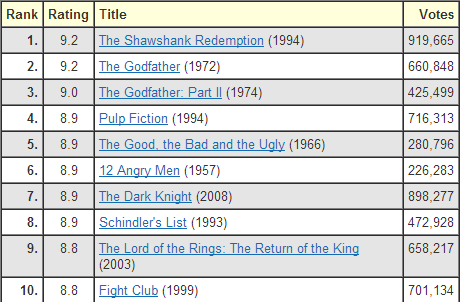Understanding Niche Online Communities
A lot of attention paid in recent years to the big online social media sites such as Facebook, but some of the most interesting destinations on the web are those websites dedicated to a single topic in great detail. This narrow focus allows people around the world to connect with others that share their niche obsession.
These niche online communities cover a broad range of topics, including knitting, discount shopping, books, movies or beer. Some sites support thousands of users and a broad topic, others have a very narrow audience. (Ex: a site dedicated to all board games vs. a single board game.)
This article explores the history of niche online communities, recent trends and some of the unique challenges these types of sites face.
Message boards – simple online communities
The simplest online communities are little more than a forum where users can read the posts made by other users, provide their own comments to further the discussion or start a new “thread” to explore a new topic. As communities grow, they tend to use folders to organize conversations into more specific areas. This type of online community is not a new concept – they preceded the world wide web itself as usenet which started in 1980 and BBS Systems. Even the earliest electronic systems were preceded by niche publications, newsletters, zines and journals.
Numerous free and paid solutions make it easy to add a message board to a website with limited technical skills, such as MyBB, SMF and BBpress.
Communities around structured content
Many strong communities form around broader topics which can be broken into atomic units that can be indexed, categorized and searched. For example, a website for people who enjoy good beer might have entries for specific beers, specific breweries or specific styles of beer. Since people often search for the name of a specific topic using a search engine, websites that offer detailed information about a specific topic can draw in new visitors since an entry in a well respected online community is often the most relevant result.
Databases
From an implementation perspective, this type of structured content is generally stored in a database using a strictly defined schema. Schematized data can be defined in many different ways including the now-ubiquitous XML format. For example, each “beer” could be represented as a separate entry in a database with columns containing information like the “name” of the beer, the “brewery” where it is brewed, the “style” of beer and more.

A community can offer many ways to find new things, such as this view of the most popular English Brown Ales on the BeerAdvocate site.
Well-designed websites around this type of structured data can be very interesting to browse, especially if they employ extensive hyperlinks. A user who enjoys “Newcastle” beer might click a link indicating that it is an “English brown ale”, which could display a list of beers of the same style. It is often possible to sort these results in interesting ways to find another beer you want to try, such as sorting by popularity to find some of the best examples of the style, or filtering by location to see other English brown ales you should try which are brewed near your home.
Community-generated content
It is a lot of work to build a large, relevant and accurate database of information, which is why many websites allow visitors to submit content and make updates. This may go through a review process to ensure the integrity of the data. Beyond the main entry for an item in a database, many communities allow visitors to submit images or other content to share with other members of the community.
Editorial content
While community-generated content can be very valuable, some sites offer editorial content which is either created by the site administrators, or a curated view of the best user-submitted content. The advantage of this editorialized content is that the site can present more consistently high quality content, especially on high-profile pages like the homepage which may be a new visitors first experience with your online community. Recent trends towards simpler, more elegant, photographically rich websites often require purpose-made editorial content to fit more rigid layout requirements.
Trends to engage your community
Successful online communities understand that they play an important role in their visitors lives, and want to encourage regular visits and meaningful contributions by visitors. There are several tactics which sites employ to get visitors to come back and stay awhile.
Collections and reviews
When a website has structured info on a large collection of items, it is a natural extension to allow visitors to use the website to keep track of their collections and experiences. The community might allow members to keep track of something they are collecting or keep track of experiences. Allowing members of the community to enter ratings can be a great way to get people to come back and record their impressions. They may do this for their own satisfaction, to have a record of their favorites that they can refer back to, and they may also offer ratings because they want other members of the community to discover things which they enjoyed.
Gamification
Successful niche online communities keep visitors coming back and contributing. Most sites reward return visitors by having new content, but many sites are exploring additional ways to bring users back.
Gamification is when game-like motivations such as our desire for rewards are applied in a non-game setting. These motivations can encourage community members to behave in a desirable way. This could range from small incentives to complete a detailed user profile with a user tile image and the city where you live, to larger incentives and recognition for contributing valuable new information to the community. Incentives might include public recognition, achievements, points and fake currencies. Some sites have even explored cash rewards or prizes.
Anonymity
Historically, most communities have allowed members of the community to participate using an “alias” which is largely anonymous. Successful communities develop well understood rules of etiquette, and it is not uncommon for members of the community to fight back when one member behaves poorly. That said, people are still more likely to behave inappropriately in online communities when nobody knows who they are.
There seems to be a recent trend towards more transparency in many facets of the world including social networks, which are increasingly encouraging that you provide a personal photo and your real name to participate in the community. This can minimize “trolling” (being nasty to others in forums) and other poor behavior which can happen in a truly anonymous community. When community members expose their true identity, they may be more likely to make valuable contributions.
Integration with broader social networks
Another trend of niche online communities has been to integrate with broader social networks such as Facebook. This is seen as a benefit for many community owners as cross-referencing to a broader social network could generate traffic to their site. Niche communities need to be careful though – they run the risk of alienating their existing members if they misuse their public social network by spamming their friends which may not care about this niche topic.
That said, a well behaved niche online community can still offer clear benefits to their members who connect their experience to a broader social network. For example, instead of spamming all of their friends, it may be more meaningful to highlight your friends from a mainstream social network who also use this niche community. Discovering that a friend shares your interest in a particular niche can lead to a richer relationship with that person.
Looking forward
Niche online communities have a lot of challenges ahead of them. They need to keep up with trends towards more elegant, well designed websites to attract new members. This can be difficult, as advertising is critical to supporting the community, but poorly integrated advertisements degrade the experience for visitors. Integrating more advanced capabilities into a community can be time consuming and costly, such as enabling high quality search experiences for your proprietary data, and enabling connections to mainstream online communities like Facebook. Many communities are also feeling pressure to develop applications to access their content more efficiently on mobile devices.
There is definitely an opportunity for easy to integrate modular solutions which allow small communities to expand to include well-designed experiences around structured content, enable community engagement features to reward and recognize valuable contributions, and to integrate thoughtfully with mainstream online communities. In the process, niche online communities must recognize that they exist to fill a narrow niche, and expanding the scope of the community may result in a less valuable, less focused community.




 TOM ALPHIN builds
TOM ALPHIN builds
Europe, and in Ancient Russia